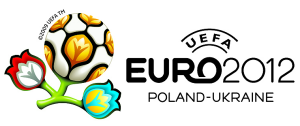Book Review: Come Sunday by George Nelson
Background and concept
 Every four years sixteen European nations compete for the Henri Delaunay (European Championship) trophy. During the summer of 2012, photographer George Nelson set out to visit a number of London venues, (bars, restaurants, clubs and churches), screening Euro 2012 matches. His aim was to ‘follow’ every team with its London residing supporters and capture each experience in pictures.
Every four years sixteen European nations compete for the Henri Delaunay (European Championship) trophy. During the summer of 2012, photographer George Nelson set out to visit a number of London venues, (bars, restaurants, clubs and churches), screening Euro 2012 matches. His aim was to ‘follow’ every team with its London residing supporters and capture each experience in pictures.
There were only two self-imposed restrictions. One was a minimum of one venue to each participating nation and the second was the omission of England supporters, bringing down the number of locations to fifteen. The latter was a conceptual choice, as the gathering of immigrant collectives lay at the hub of this venture. The Euro 2012 project also serves as a demonstration of the London’s uniquely diverse make-up, locates several subtleties in cultural variation, yet more than hints at a universality in our relationship with ‘the beautiful game’.
From this vast palette, George settled on a single location in which to centre his book and the first Tatum Special publication. ‘Come Sunday’ hones in on the Italian Euro 2012 experience. On three Sundays* that summer Italian supporters gathered at C’asa Italiana – a penalty kick away from their Basilica-style Church, St Peter’s – as Clerkenwell reclaimed its ‘Little Italy’ status.
* 10 June 2012, Group C, Italy 1 – 1 Spain
24 June 2012, Quarter-Final, Italy 0 – 0 England (Italy won pens 4-2)
01 July 2012, Final, Italy 0 – 4 Spain
Review
In December 2013 Monte Fresco died at the age of 77. It’s a name that many people won’t recognise, although undoubtedly many will remember his work. Monte was an English sports photographer, and one of his most famous images was that of Vinnie Jones ‘tackling’ a young Paul Gascoigne.
Despite the fact that our screens are awash with football from all over the world, photographs which capture a moment, an emotion or are breath-taking, challenging or beautiful, will always have a place in ‘the people’s game’.
George Nelson in ‘Come Sunday’ has looked to focus on the fans rather than the action on the pitch. Nelson shared three games with the Italian fans, including those which saw, qualification from Group C, the drama of a penalty win over England and the disappointment of defeat in the Euro 2012 Final to Spain.
The book consists of thirty images which capture this journey. Nelson succeeds in conveying the emotion and drama of both victory and defeat, without an image of any of the games. Instead the ‘high and lows’ are conveyed through the expressions and body language of those gathered in Clerkenwell.
Nelson is successful in capturing more than just the football, in that the essence of family and community is evident, as the pictures portray the old and the young, men and women, all united in supporting ‘their team’.
One of the other themes which emerge from this collection is the idea of football as a religion. Not only are the images captured on a Sunday (the traditional day of rest), but the location is linked to the local Catholic church.
The great thing with the images is that you can initially focus on the central figures, but then also can revisit the pictures and understand what is going on in the background, so getting a feel for the context. For instance, the last image in ‘Come Sunday’ shows a mother, coat in hand, ready to take her children home. On the screen in the room, Spanish striker Fernando Torres celebrates victory in the Final as he takes his own child on a lap of honour.
It is a small tome, but is a collection of pictures you’ll want to look at again and interpret for yourself.
* * * * * * * * *
For more information about George Nelson and to buy ‘Come Sunday’, follow this link
 Tuesday 12 June 2012
Tuesday 12 June 2012 As summer stills attempts to make its mind up about whether to actually show up this year, June sees the beginning of the UEFA 2012 European Championships, hosted by Poland and Ukraine. The award of the event to these countries has divided opinion. UEFA President Michel Platini, unsurprisingly, is fully supportive of taking such a major tournament to new territories. However, Theo van Seggelen (Secretary General of the World Players Union, FIFPro) is concerned that the abiding memory of the Championships could be more about racism and violence than events on the pitch. This assertion is based around work carried out by FIFPro and
As summer stills attempts to make its mind up about whether to actually show up this year, June sees the beginning of the UEFA 2012 European Championships, hosted by Poland and Ukraine. The award of the event to these countries has divided opinion. UEFA President Michel Platini, unsurprisingly, is fully supportive of taking such a major tournament to new territories. However, Theo van Seggelen (Secretary General of the World Players Union, FIFPro) is concerned that the abiding memory of the Championships could be more about racism and violence than events on the pitch. This assertion is based around work carried out by FIFPro and